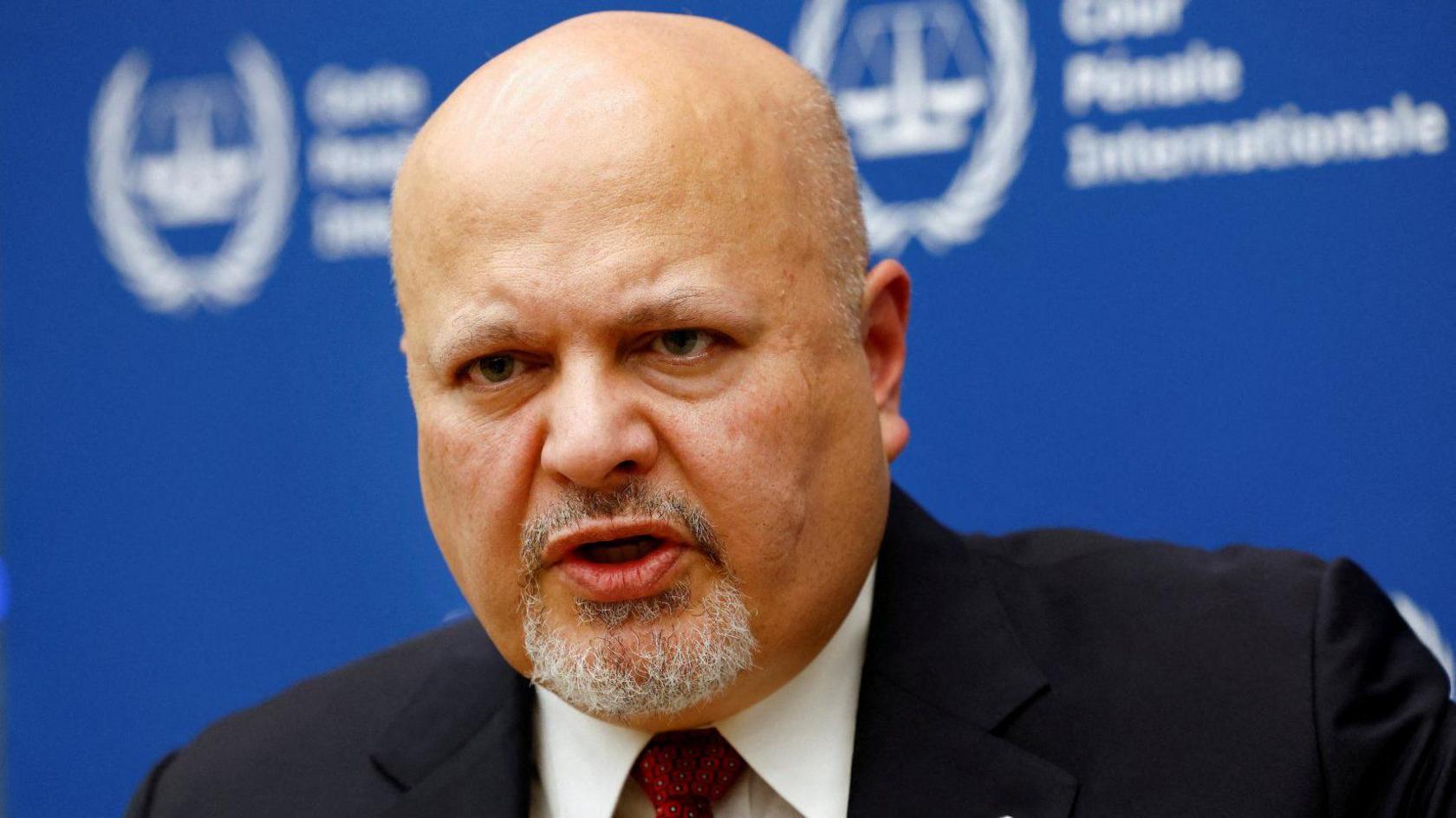ICC prosecutor denies sexual misconduct allegations

Karim Khan says he will co-operate fully with an inquiry
- Published
The most senior prosecutor of the International Criminal Court (ICC), Karim Khan, has denied allegations of sexual misconduct and asked for an immediate investigation.
In a statement, he announced that he had asked the ICC's watchdog, the Independent Oversight Mechanism (IOM), to conduct the investigation.
He also said he had requested an inquiry into what he termed apparent "disinformation" related to the case.
This move follows recent media reports which cited a document outlining accusations against Mr Khan. They are understood to include unwanted sexual touching and "abuse".
- Published5 September
This is denied by Mr Khan, who has said he will co-operate fully with the inquiry.
The ICC has been under intense scrutiny following the prosecutor's request for arrest warrants linked to the conflict in Gaza.
This development comes after the president of the ICC's Assembly of States Parties (ASP), the court's management oversight and legislative body, revealed last week that the IOM had been in contact with the alleged victim, but said it was not in a position to proceed with an investigation at that stage.
According to the Guardian newspaper, the female lawyer who was subjected to unwanted sexual advances by Mr Khan, over an extended period of time and in various locations, had concerns about the IOM's competence and was not given adequate opportunity to have the matter investigated by an external body.
ASP President Paivi Kaukoranta referenced the IOM's 2023-2024 annual report, which states that, "following the conversation with the alleged victim, the IOM was not in a position to proceed with an investigation at that stage. Measures to safeguard everyoneтАЩs rights were recommended."
In an earlier statement, Mr Khan did not explicitly blame Israel, but did juxtapose the sexual misconduct allegations and efforts to undermine his position when he described this as "a moment in which myself and the International Criminal Court are subject to a wide range of attacks and threat".
But the sexual misconduct allegations are understood to pre-date his request for arrest warrants linked to the conflict in Gaza.
A panel of three ICC judges is currently considering requests by Mr Khan to issue arrest warrants for Israeli leaders - including Prime Minister Benjamin Netanyahu - for alleged war crimes and crimes against humanity committed in Gaza.
The court of last resort was set up to deal with the most heinous crimes of an international nature when countries are unable or unwilling to prosecute high ranking individuals accused of atrocities.
Mr Khan said he learnt that the accusations were to be "aired publicly" with "deep sadness", and that there was "no truth to suggestions of such misconduct".
The serious allegations have reached the public domain at a sensitive moment for the ICC.
Based in The Hague, in the Netherlands, the ICC now faces an unrivalled crisis, with intensifying internal wranglings over the handling of the allegations, and apparent efforts by the courtтАЩs critics to politicise them.
Kaukoranta said the ICC had a "zero-tolerance policy" towards prohibited conduct, such asтАпharassment, including sexual harassment, discrimination and abuse of authority, and that she remained "in contact with all individuals concerned to ensure that everyone's rights continue to be safeguarded".